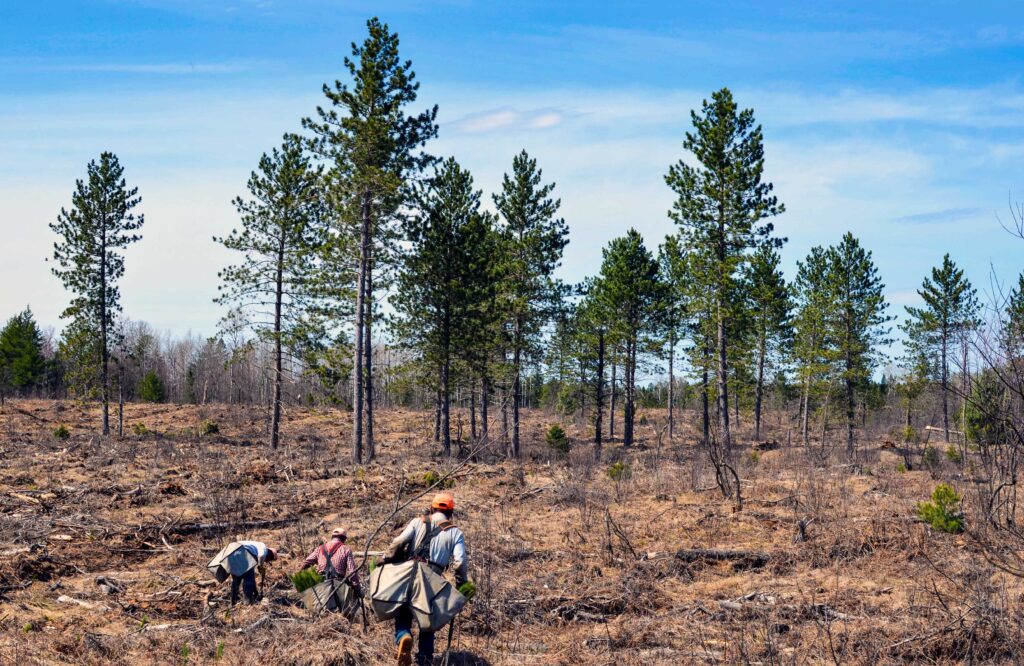Michigan leads the nation with first carbon project on state forestland

Three members of a larger crew plant pine tree seeds in Marquette County, regenerating an area where timber was harvested previously. Credit: Michigan Department of Natural Resources
Just a single tree can absorb as much as 48 pounds of carbon dioxide in a year. That means that by the time a tree is 40 years old, it can store 1 ton of carbon.
This means Michigan’s nearly 20 million acres of forest can make a large impact in reducing the amount of carbon dioxide that has been released to the environment.
The Michigan DNR and Gov. Gretchen Whitmer are planning to remove carbon dioxide and cut pollution with a new project that will take place over more than 100,000 acres of state forestland.
“Michigan’s natural resources are vital to our families, our environment, and our economy. That’s why this administration is stepping up to address climate change here in Michigan,” said Governor Whitmer. “By utilizing this carbon credit program, we can lower pollution, slow the effects of climate change, and create a better Michigan for families and small businesses across the state.”
If these trees are then used to make wood products, the carbon they absorbed from the atmosphere is captured or “stored” within the manufactured furniture, houses or countless other items. Carbon absorption could include reforesting lands as well as restocking forests impacted by disease or invasive species.
“This idea makes sense for the environment, for healthy, thriving outdoor spaces and for the people of Michigan,” DNR Director Dan Eichinger said.
The DNR has selected a Salt Lake City firm to head the program.
“It’s an honor to collaborate with Michigan’s Department of Natural Resources as it takes this groundbreaking action and serves as a model for other state forest management programs,” said Josh Strauss, Bluesource vice president.
The DNR manages 4 million acres of state forests across the state. The pilot will likely soon become a requirement of continued DNR forest certification as well as help move Michigan towards its climate change goals.
